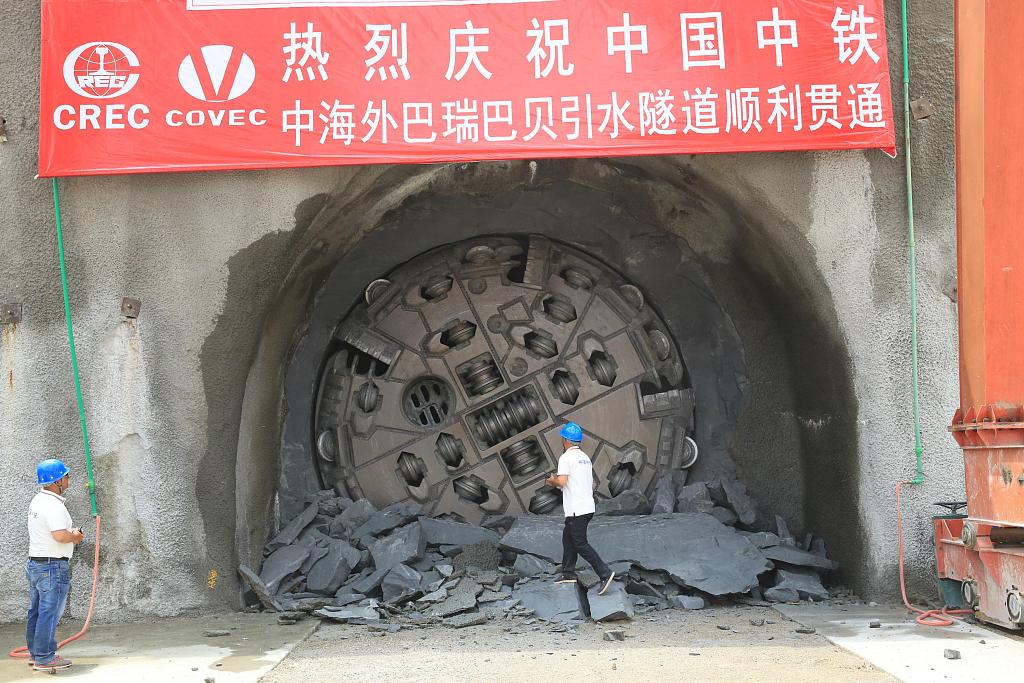BRI boosts Nepal's infrastructure development
- By Ritu Raj Subedi
 0 Comment(s)
0 Comment(s) Print
Print E-mail China.org.cn, May 24, 2019
E-mail China.org.cn, May 24, 2019

China's ambitious Belt and Road Initiative (BRI) is becoming a viable instrument to enhance Nepal's infrastructure development essential to realize its national goal of Prosperous Nepal, Happy Nepali.
The deepening cooperation between the two neighbors has contributed to the early and timely completion of China-supported development projects related to basic infrastructure, connectivity, agriculture, tourism, trade and industrial development.
This has generated optimism that mega projects underway or in the pipeline can be completed on time to meet the public expectations. Most of the big projects have drawn criticism for not being finished in time or been excessively delayed owing to negligence of contractors, labor unrest, political interference, bureaucratic hassles and corruption. However, of late, the China-funded projects have made headway by overcoming these obstacles.
Some projects have been completed before their deadline while others are on track as the Chinese government has prioritized engagement in promoting infrastructure development forming the key component of the BRI launched in 2013 to boost connectivity, investment, trade and people-to-people relations.
Construction of the tunnel for the Bheri-Babai Multipurpose Diversion Project, the Gautam Buddha and Pokhara international airports and Tatopani border checkpoint are some important China-constructed works recently completed as Nepal enters a new phase of development following the establishment of political stability and the formation of a majority government last year.
The tunnel project, a national pride project located in western Nepal, was completed one year ahead of schedule. Constructed by China Overseas Engineering Co. Ltd., the 12.2-km tunnel will help irrigate 51,000 hectares of land.
The two international airports, likely to begin operation next year, will give impetus to the country's tourism industry. The Nepali government is pinning high hopes on these two projects to make Visit Nepal 2020 a grand success. It seeks to bring in around 2 million tourists to boost the national economy hard hit by chronic instability, decade-long conflict and a devastating earthquake in 2015.
About 20-km from Lumbini, birthplace of Gautam Buddha, Gautam Buddhism International Airport is expected to attract Buddhist followers from neighboring countries and travelers from around the globe.
However, the government still has to devise a comprehensive business plan, such as the arrangement for handling wide-body aircraft to ensure the new airport is commercially viable and contributes to the national economy.
In similar manner, the construction of Nepal's second largest checkpoint, the Tatopani customs office on the border with China in central Nepal, will add new momentum to bilateral trade ties.
The completion one after another of the China-constructed projects ahead of schedule will have positive implications for Nepal's economic development. Additionally, this will enhance the credibility and capacity of the Chinese construction companies and contractors in Nepal where scores of China-financed projects are underway.
Nepal joined the BRI in 2017 with a view to promote multidimensional relations with its northern neighbor. Nepal is in the dire need of basic infrastructure development which the World Bank estimates will cost around US$18 billion. Nepal is now striving to graduate from the status of least developed country to a developing one by 2022 which requires spending four times this figure. Therefore, Nepal has opted for Chinese investment to develop its necessary infrastructure.
Many nations have been unable to achieve industrial growth in the absence of the required infrastructure network. One visible reason behind their plight is that many international financial institutions hesitate to provide loans because of uncertainty of repayment, poor environmental laws and fragile domestic politics.
China, however, offers financial assistance to such countries to build their infrastructure, thereby enabling the partner countries to better utilize their natural resources and open new industries and service centers.
As a BRI participant, Nepal is poised to take full advantage of the economic opportunities on offer. It is high time both neighbors elevated their cooperative partnership into a comprehensive and strategic one in view of fast changing geopolitics in the region and beyond.
Ritu Raj Subedi is Deputy Executive Editor of The Rising Nepal.
Opinion articles reflect the views of their authors, not necessarily those of China.org.cn.
If you would like to contribute, please contact us at opinion@china.org.cn.





